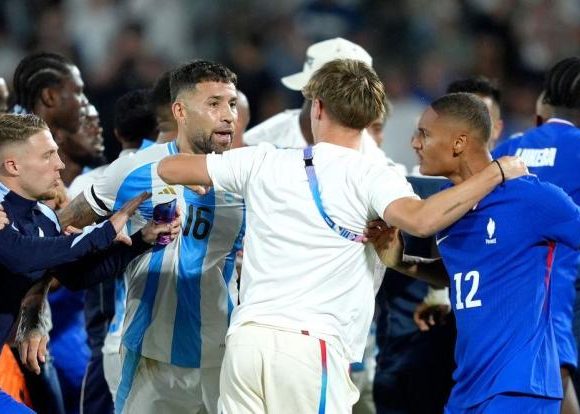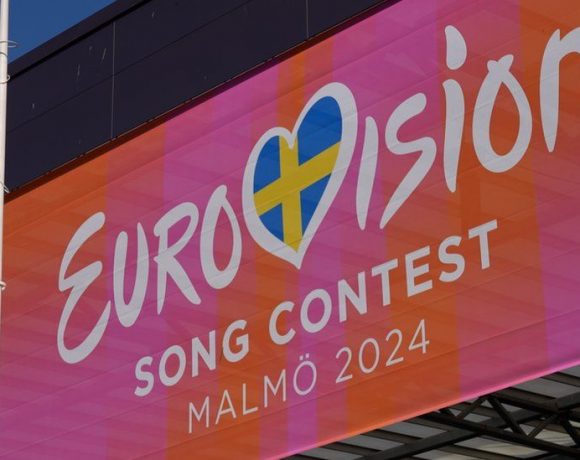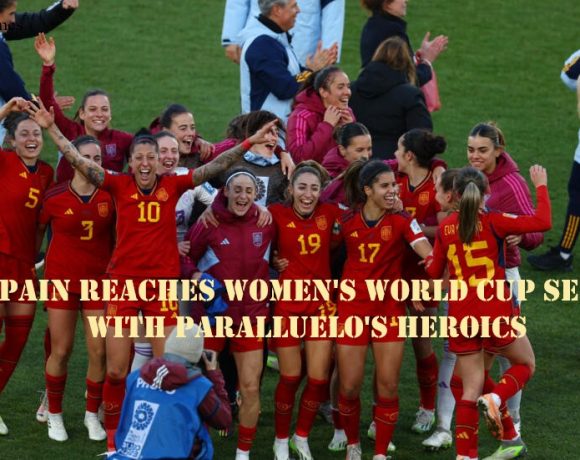
France secured a spot in the Olympic men’s football semi-finals against Egypt after defeating Argentina 1-0 in a tense quarter-final that ended with clashes between players and coaches from both sides.
Crystal Palace striker Jean-Philippe Mateta scored the decisive goal, heading in a corner from Michael Olise in the fifth minute. Argentina’s best opportunity came just before halftime when Giuliano Simeone missed a close-range header.
France had a late goal disallowed after a VAR review determined that Maghnes Akliouche had committed a foul before Olise’s deflected shot found the net. The rivalry between the teams was heightened by recent tensions, including Argentina players singing derogatory songs about France’s black players after winning the Copa America on July 14. The French crowd booed the Argentinian national anthem, and the skirmish at the end of the match underscored the ongoing animosity.
France, who last won Olympic gold in men’s football in 1984, will face Egypt in the semi-finals on Monday after the Pharaohs triumphed over Paraguay 5-4 in a penalty shootout following a 1-1 draw.
Argentina, who defeated France in the 2022 World Cup final, aimed to become the first team since Italy in 1936 to hold both the World Cup and Olympic titles simultaneously.
The day also saw French athletes excel, as they won gold medals in judo, swimming, and BMX cycling.
Spain reached the semi-finals by defeating Japan 3-0 in Lyon, with Fermin Lopez scoring twice. The Barcelona midfielder opened the scoring early with a powerful left-foot shot and added a second goal after halftime with a dipping right-foot effort. Japan’s Mao Hosoya had a goal disallowed for offside after a lengthy VAR check. Abel Ruiz capped off the victory with a late tap-in, setting up a semi-final clash with Morocco in Marseille on Monday.
Morocco dominated their quarter-final against the United States, winning 4-0 and reaching the semi-finals for the first time. Soufiane Rahimi scored from the penalty spot, Ilias Akhomach added a close-range goal, and captain Achraf Hakimi extended the lead with a fine left-foot shot. Substitute Mehdi Maouhoub completed the scoring with another penalty in stoppage time following a VAR review for handball.
“I felt at home in this stadium, where I play for my club, and our fans were very supportive and present,” said Hakimi, who plays for Paris St-Germain. “I hope they continue to support us all the way to the final; we want to make them proud.”
Picture Courtesy: Google/images are subject to copyright


